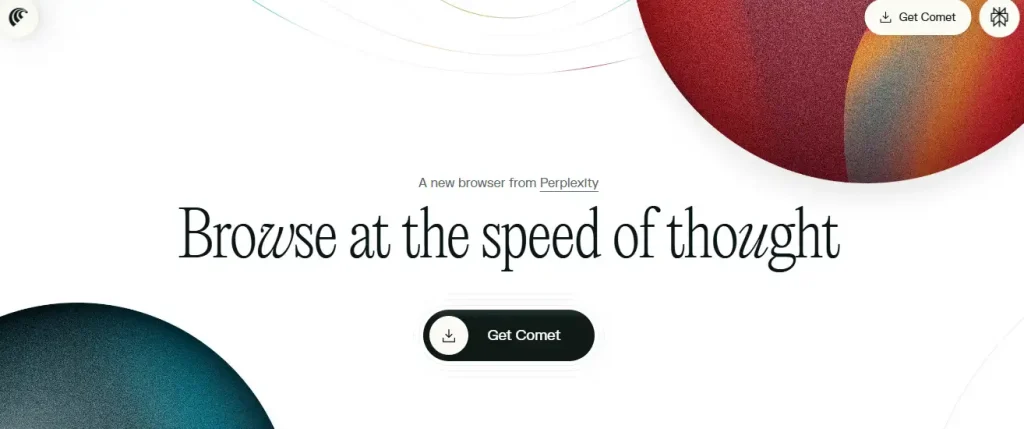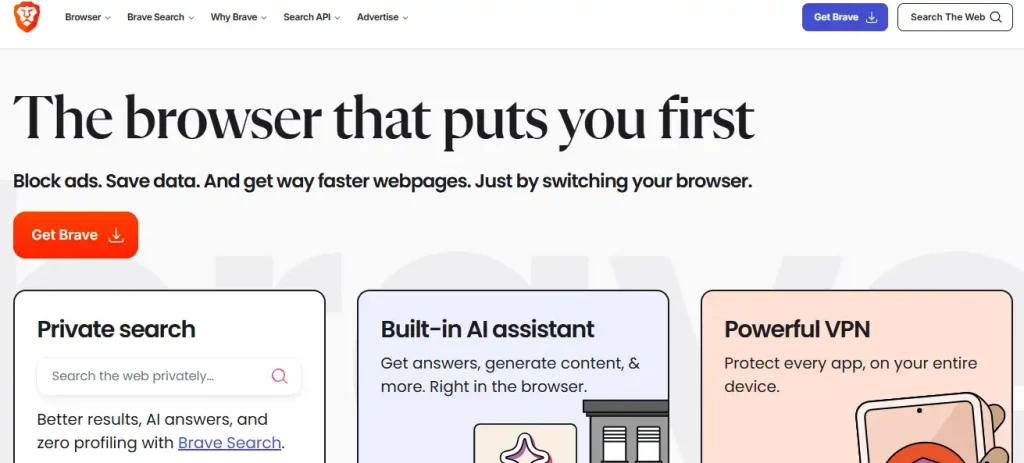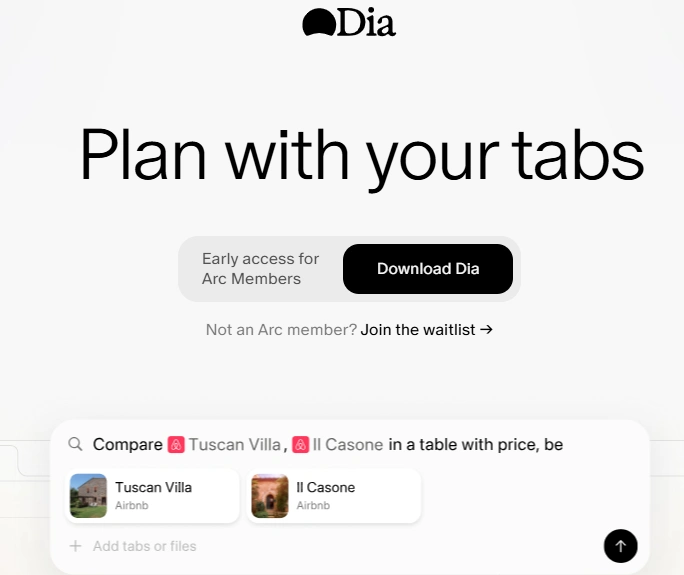Remember when browsers just opened websites? Today’s AI browsers taking over the world can not only book your flight, but also double up as a therapist, finds Satyen K. Bordoloi.
On September 30, 1997, Microsoft released Internet Explorer 4 at a party in San Francisco. Some team members decided to prank rival Netscape. They planted a giant metal “e” logo – the Internet Explorer symbol – on the front lawn of Netscape’s headquarters. It was paired with a greeting card that read: “Best wishes, the IE team.”
Netscape had the larger browser market share. So, their employees toppled the “e”, placed a giant Mozilla dinosaur mascot on top of it, and pasted a sign reading: “Netscape 72, Microsoft 18” — referring to their browser market share.

This wasn’t just a prank war. It captured the spirit of the fierce competition that shaped the future of the internet. Microsoft’s bundling of IE with Windows eventually led to a dramatic shift in market share and Netscape’s decline. But the pure Silicon Valley theatre that was that lawn battle, it’s round two, is waiting to explode in 2025. But there’s a twist: the new browser war isn’t about tabs or toolbars; we can all call it a battle between human patience and AI. And this time, the browsers aren’t just displaying the web; they’ll be quietly judging your life choices.
The Rise of the Overbearing Digital Butler
So, what is an AI browser exactly? Imagine if Chrome and ChatGPT had a hyper-competent lovechild that permeated every aspect of your digital life. Traditional browsers? Mere “dumb pipes” for shuttling cat GIFs to your eyeballs. AI browsers, however, are your co-pilots with a high opinion about themselves. They don’t just open pages – they interpret them, they don’t just display your emails – they summarise them, they not only grammar check your rant but fact-check them, all the while quietly judging your 2 a.m. Wikipedia deep dive on “Are stretchable pants available in office wear?”

Perplexity’s Comet, for instance, doesn’t wait for you to ask. It anticipates. Researching Goa resorts? It’ll compare flights, find 4-star hotels, and draft a packing list – all while subtly implying you should’ve done this months ago. It’s less “browser,” more “overachieving intern with five espressos constantly in her”. OpenAI’s rumoured browser (codenamed “Operator++”) takes it further: it wants to replace websites. Why click ten links for vacation planning when ChatGPT can summarise it all inside a chat window (while, perhaps, discreetly hoarding your data for world domination).
The Features: Less Scrolling, More Relief
Today’s AI browsers have skills coded into them that would’ve made the 1997 Netscape engineers who planted the dinosaur mascot over ‘e’, faint in horror. Staring at a 5,000-word think piece on blockchain? Edge’s Copilot can condense it to five bullet points. Opera’s Aria can do the same in 12 languages while ordering you your favourite cappuccino. Then there’s Brave’s Leo, who ghostwrites emails with privacy firmly in place. SigmaOS drafts blog posts so creative, it’d make Hemingway weep.
And let’s not forget Google’s own “AI Overviews”, which now answer queries directly – bypassing links entirely. Publishers are naturally furious as traffic is down exponentially and threatens to upend the website creation and content game entirely, but users they’re rejoicing. Why click on a link, then read through it, when an AI can confidently misattribute facts or fake them completely? Just kidding: they do summarise it well, most of the time.

These AI browsers can do much more. Brave and DuckDuckGo do ad-blocking with the quietness of ninjas, with DDG even announcing that users can opt out of seeing AI images altogether in their search results. While Vivaldi browser outright rejects AI integration, sneering that LLMs are “confident-sounding lying machines.”
When Browsers Get Brain Transplants
How can 2025 browsers do what 1997 ones couldn’t even fantasise? Because back then, the concept of Large Language Models (LLMs) hadn’t been discovered, while today they’re not only helping students cheat on their writing tests, but are also integrated into a browser’s core. This isn’t a toolbar add-on but a full system transplant or a brain implant. Take Dia by The Browser Company: it remembers your workflows, suggests tabs like a psychic, and turns browsing into a dialogue. In 1997, you navigated the web; today, you negotiate with an algorithm that knows you forgot your mom’s birthday last month.

The interface itself is evolving. Take the ubiquitous Tabs? It has been outdated and rendered obsolete. Instead, Comet uses a “sidecar panel” that chats alongside your content. SigmaOS groups tabs vertically like a to-do list you can guiltily snooze and even splits your screen for “Easy multitasking”. And who knows, OpenAI’s mystery browser may kill links entirely.
So who wins? Who is this for? The answer: everyone. And this is not just about ‘surfing’ the internet. You can now head for your ‘smart’ browser that comes with a brain of its own to do almost anything.
The Ethical Deepwater
But of course, as with all other progress, these AI browsers also come with a catch hidden in plain sight. They demand data, lots of it. Comet needs calendar/email access to “help.” OpenAI’s browser reportedly collects behavioural data to rival Google’s ad-targeting empire. And we’re not even talking about the environmental impact, the heat generated, the water wasted from so much AI being run to do such small things.
Then there is the hallucination problem. Ask Comet to book a “romantic, haunted” hotel for you, and it might reserve a cemetery instead. Then there’s bias. AI summaries like that from Google could amplify fringe views or censor dissent while governments slap them with regulatory nightmares: the Department of Justice is already suing Google for monopolising search via Chrome. Now imagine OpenAI buying Chrome if antitrust forces a sale. Irony’s dead, and AI killed it.

And most importantly, what happens when AI becomes your gatekeeper? With the larger web, you would accidentally visit different sites while searching, and learn a contrarian view that helped you grow. But when you’re locked out from the larger web by an AI browser that spoon-feeds answers curated to your prejudice, what will it do to you personally and society as a whole? As such, more and more, each one of us is beginning to inhabit silos instead of communities. Will this increase the ghettoisation and isolation all of us feel, and what impact will it have on the world? We don’t know yet, but we’ll find out soon enough.
The 90s Browser Wars were fought with predatory licensing as swords and pixelated logos as shields. But today’s AI skirmishes are a battle for your attention, trust, and data and are being waged by browsers that don’t just serve you the web; they supervise it for you. Netscape lost because it couldn’t load fast enough. The winner this time? Whoever makes us feel less alone in the information tsunami… while quietly running the world.
In case you missed:
- AI Browser or Trojan Horse: A Deep-Dive Into the New Browser Wars
- Why is OpenAI Getting into Chip Production? The Inside Scoop
- OpenAI, Google, Microsoft: Why are AI Giants Suddenly Giving India Free AI Subscriptions?
- Gemini & Copilot accessing your content: A great data grab in the name of AI assist?
- Why the Alleged, Upcoming AI Crash Is Never Going To Happen
- Zero Clicks. Maximum Theft: The AI Nightmare Stealing Your Future
- Meet Manus AI: Your New Digital Butler (don’t ask it to make coffee yet)
- The AI Prophecies: How Page, Musk, Bezos, Pichai, Huang Predicted 2025 – But Didn’t See It Like AI Is Today
- The Great AI Correction of 2026: Why the ‘Bubble’ Popping Could be the Sound of Growing Pains
- Disney’s $1B OpenAI Bet: Did Hollywood Just Surrender to AI?









